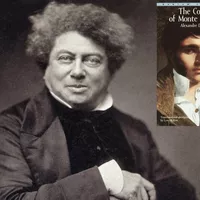Chapter 6. The Deputy Procureur du Roi (3)
"Do you, indeed, think so?" inquired the marquise.
"I am, at least, fearful of it. Napoleon, in the Island of Elba, is too near France, and his proximity keeps up the hopes of his partisans. Marseilles is filled with half-pay officers, who are daily, under one frivolous pretext or other, getting up quarrels with the royalists; from hence arise continual and fatal duels among the higher classes of persons, and assassinations in the lower." "You have heard, perhaps," said the Comte de Salvieux, one of M. de Saint-Meran's oldest friends, and chamberlain to the Comte d'Artois, "that the Holy Alliance purpose removing him from thence?" "Yes; they were talking about it when we left Paris," said M. de Saint-Meran; "and where is it decided to transfer him?" "To Saint Helena." "For heaven's sake, where is that?" asked the marquise.
"An island situated on the other side of the equator, at least two thousand leagues from here," replied the count. "So much the better. As Villefort observes, it is a great act of folly to have left such a man between Corsica, where he was born, and Naples, of which his brother-in-law is king, and face to face with Italy, the sovereignty of which he coveted for his son." "Unfortunately," said Villefort, "there are the treaties of 1814, and we cannot molest Napoleon without breaking those compacts." "Oh, well, we shall find some way out of it," responded M. de Salvieux. "There wasn't any trouble over treaties when it was a question of shooting the poor Duc d'Enghien." "Well," said the marquise, "it seems probable that, by the aid of the Holy Alliance, we shall be rid of Napoleon; and we must trust to the vigilance of M. de Villefort to purify Marseilles of his partisans. The king is either a king or no king; if he be acknowledged as sovereign of France, he should be upheld in peace and tranquillity; and this can best be effected by employing the most inflexible agents to put down every attempt at conspiracy--'tis the best and surest means of preventing mischief." "Unfortunately, madame," answered Villefort, "the strong arm of the law is not called upon to interfere until the evil has taken place." "Then all he has got to do is to endeavor to repair it." "Nay, madame, the law is frequently powerless to effect this; all it can do is to avenge the wrong done." "Oh, M. de Villefort," cried a beautiful young creature, daughter to the Comte de Salvieux, and the cherished friend of Mademoiselle de Saint-Meran, "do try and get up some famous trial while we are at Marseilles. I never was in a law-court; I am told it is so very amusing!" "Amusing, certainly," replied the young man, "inasmuch as, instead of shedding tears as at the fictitious tale of woe produced at a theatre, you behold in a law-court a case of real and genuine distress--a drama of life. The prisoner whom you there see pale, agitated, and alarmed, instead of--as is the case when a curtain falls on a tragedy--going home to sup peacefully with his family, and then retiring to rest, that he may recommence his mimic woes on the morrow,--is removed from your sight merely to be reconducted to his prison and delivered up to the executioner. I leave you to judge how far your nerves are calculated to bear you through such a scene. Of this, however, be assured, that should any favorable opportunity present itself, I will not fail to offer you the choice of being present." "For shame, M. de Villefort!" said Renee, becoming quite pale; "don't you see how you are frightening us?--and yet you laugh." "What would you have? 'Tis like a duel. I have already recorded sentence of death, five or six times, against the movers of political conspiracies, and who can say how many daggers may be ready sharpened, and only waiting a favorable opportunity to be buried in my heart?" "Gracious heavens, M. de Villefort," said Renee, becoming more and more terrified; "you surely are not in earnest." "Indeed I am," replied the young magistrate with a smile; "and in the interesting trial that young lady is anxious to witness, the case would only be still more aggravated. Suppose, for instance, the prisoner, as is more than probable, to have served under Napoleon--well, can you expect for an instant, that one accustomed, at the word of his commander, to rush fearlessly on the very bayonets of his foe, will scruple more to drive a stiletto into the heart of one he knows to be his personal enemy, than to slaughter his fellow-creatures, merely because bidden to do so by one he is bound to obey? Besides, one requires the excitement of being hateful in the eyes of the accused, in order to lash one's self into a state of sufficient vehemence and power. I would not choose to see the man against whom I pleaded smile, as though in mockery of my words. No; my pride is to see the accused pale, agitated, and as though beaten out of all composure by the fire of my eloquence." Renee uttered a smothered exclamation.
"Bravo!" cried one of the guests; "that is what I call talking to some purpose."

